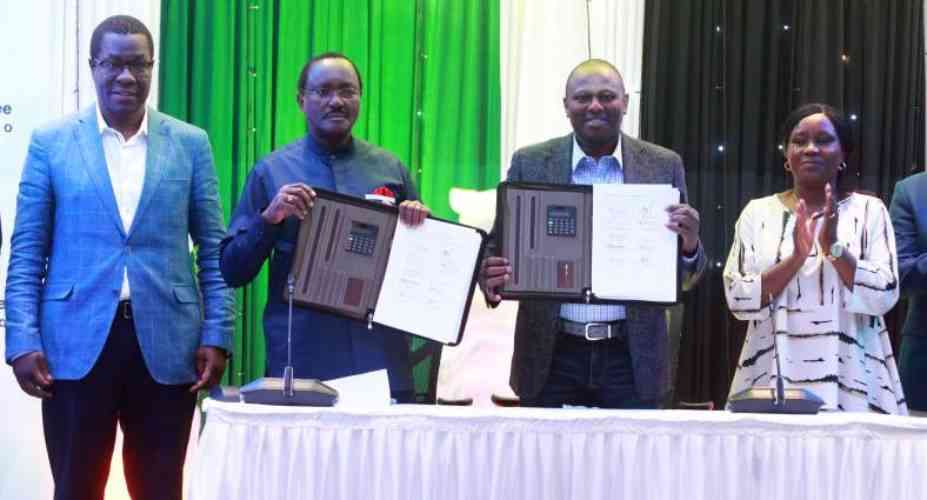National Dialogue committee co-chairs Kimani Ichungwa and Kalonzo Musyoka during the unveiling of the committee report in Nairobi. [Dennis Kavisu]
×
The Standard e-Paper
Stay Informed, Even Offline

National Dialogue committee co-chairs Kimani Ichungwa and Kalonzo Musyoka during the unveiling of the committee report in Nairobi. [Dennis Kavisu]
The National Dialogue Committee (NADCO) unveiled its report on Saturday, November 25 with a number of recommendations, including proposals to reduce the cost of living, audit the 2022 electoral process, and restructure the Independent Electoral and Boundaries Commission (IEBC).